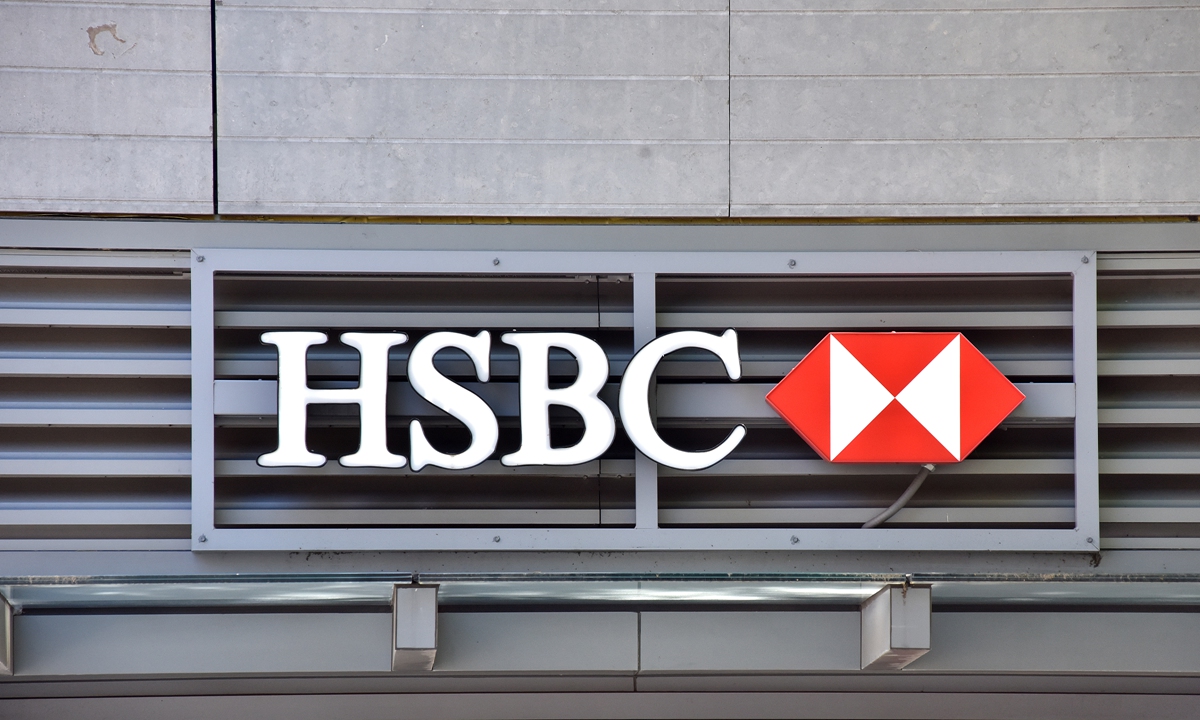Shares in HSBC slip to a four-year low amid Huawei-related crisis
By Xie Jun and Yang Kunyi Source: Global Times Published: 2020/7/28 21:08:40

File photo: HSBC Photo: VCG
Shares in London-based multinational bank HSBC slipped to a four-year low on Tuesday as it faced a crisis in China over the company's reported conspiring role in the case of Huawei CFO Meng Wanzhou's arrest.
The share price of HSBC Holdings, which is currently listed on the Hong Kong stock exchange, slipped by 1.56 percent to HK$34.8 ($4.49) on Tuesday.
HSBC's share price slumped after it reportedly played a role in the arrest of Huawei CFO Meng Wanzhou, which has aroused a lot of controversies on China's social media platforms.
HSBC issued a statement on Saturday denying any participation in the US' decision to investigate Huawei, but it still triggered criticism from Chinese observers who said that HSBC's statement is not convincing as the company already acknowledged handing materials to the US Department of Justice.
Dong Dengxin, director of the Finance and Securities Institute at the Wuhan University of Science and Technology, said that the reported role of HSBC in the Meng Wanzhou case could have influenced investment preference from mainland investors who have a growing presence in the Hong Kong market through the market connects with Shanghai and Shenzhen.
"HSBC did not deny that it has provided materials for the US that lead to the detainment of Meng," Dong said, "That might not be received well by investors from the mainland, who are more sensitive to how the political event could undermine the company's performance."
According to Dong, there are mounting worries that politics might affect HSBC's business in China, a significant part of its Asia-Pacific operations.
"If the company's relationship with the Chinese government continues to deteriorate, investors will be concerned that politics will be translated into business losses," he said.
HSBC was earlier criticized for not clarifying its position on Hong Kong's new national security law quickly enough.
Independent economist Yu Fenghui told the Global Times that HSBC's should "wait for the worst situation" in China in the future, considering that it is already facing great pressure from the rise of the new economy and is constantly losing customers.
Dong also agreed that HSBC's share price plunge reflects a general trend in the banking industry whose market valuation has deflated after they were hit hard by the pandemic since February.
HSBC closed six sub-branches in the Chinese mainland this year.
Some experts told the Global Times earlier that the HSBC should be a lesson to other institutions that they should not meddle with China-US disputes.
Posted in: ECONOMY,BIZ FOCUS